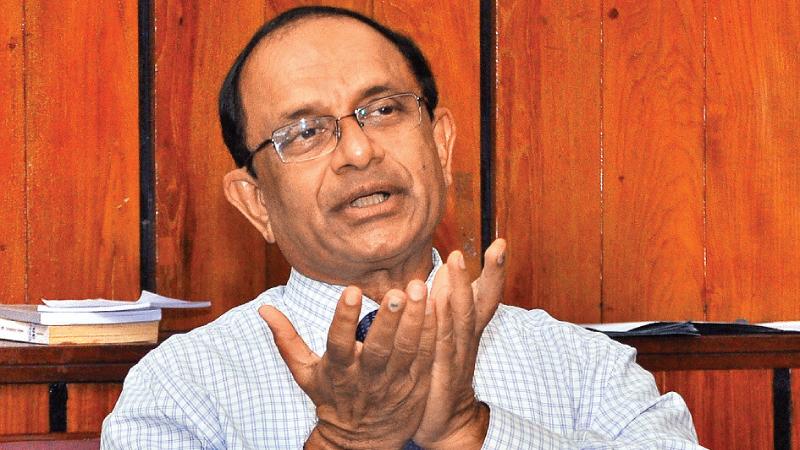
The government will table the Judicature Amendment Bill that aims to set up a special High Court at-bar to try corruption cases soon after the New Year, complete with amendments suggested by the Supreme Court in its determination on the legality of the bill.
Speaking to the Sunday Observer, UNF Parliamentarian Dr Jayampathy Wickremaratne said that it will be taken up in parliament for the second reading very soon. “The Government would introduce all the necessary amendments at committee stage on that day,” the senior constitutional lawyer and MP said.
“We are looking to get this through parliament at the earliest.
There is no reason for any delays now since it is a matter of taking amendments according to the Supreme Court judgment” he said.
The Supreme Court ruled that the bill would need a two thirds majority to be enacted since parts of it were inconsistent with the constitution after the Joint Opposition, the BASL and the Sri Lanka Podujana Peramuna challenged the constitutionality of the proposed legislation. The Government has undertaken to amend the bill in line with the Court determination, in order that it may be passed with a simple majority in the House.
The suggested amendments include that the Trial-at-Bar should be held within the respective provincial high courts and not at the Trial-at-Bar of the High court of Sri Lanka.
The determination finds that although it is not clear as to whether the amendments look to establish a separate High Court of Sri Lanka, states that the offences the High Courts are conferred are offences committed within the jurisdiction of a province and if that jurisdiction is to be conferred to a High court of Sri Lanka it will be inconstant with article 154p (3) (a) of the constitution.
The determination by the country’s Apex Court also found that the decision to indict must not be a matter for the Attorney General or the Director General of the Bribery Commission but that it should be for the Chief Justice. Under the Criminal Procedure Code, the discretion lies with the Chief Justice to decide whether a Trial-at-Bar should be held or not. This was introduced to eliminate the risk of arbitrary use of discretion. Therefore it is determined that this power should remain with the Chief Justice to avoid any inconsistencies, the ruling finds.
The Judicature Amendment Bill to introduce permanent High Court Trials at Bar to try cases of corruption and complex financial crimes was placed in the parliament order paper in February but was faced with an obstacle when cases were filed in Supreme Court challenging its constitutionality.
The Supreme Court bench consisting of the Chief Justice Priyasath Dep, Justice B. P. Aluwihare and Justice H. N. J. Perera determined that the bill in its originality would need to be passed with a two-thirds majority and suggested amendments that should be adopted to pass the bill with a simple majority.
Dr. Wickremeratne reiterated that the Government will accept the Supreme Court determination and the suggested amendments so that a requirement of a two thirds majority was not necessary. “All those changes are been accepted in accordance with the decision so that it could be passed with a simple majority,” he said.
